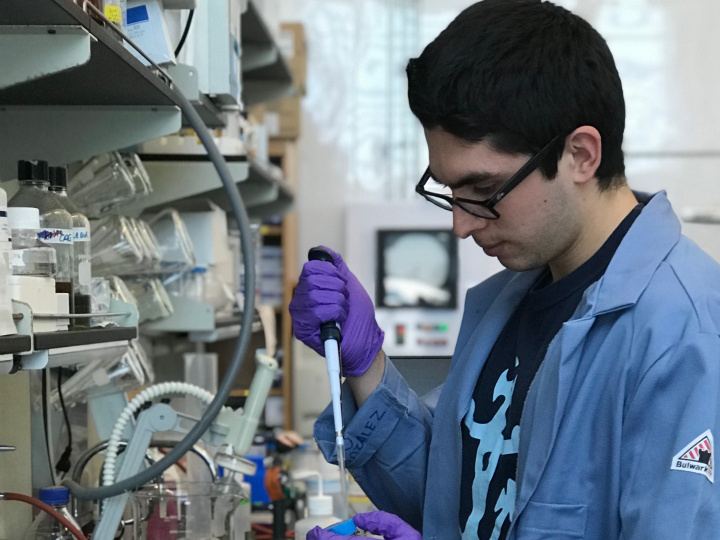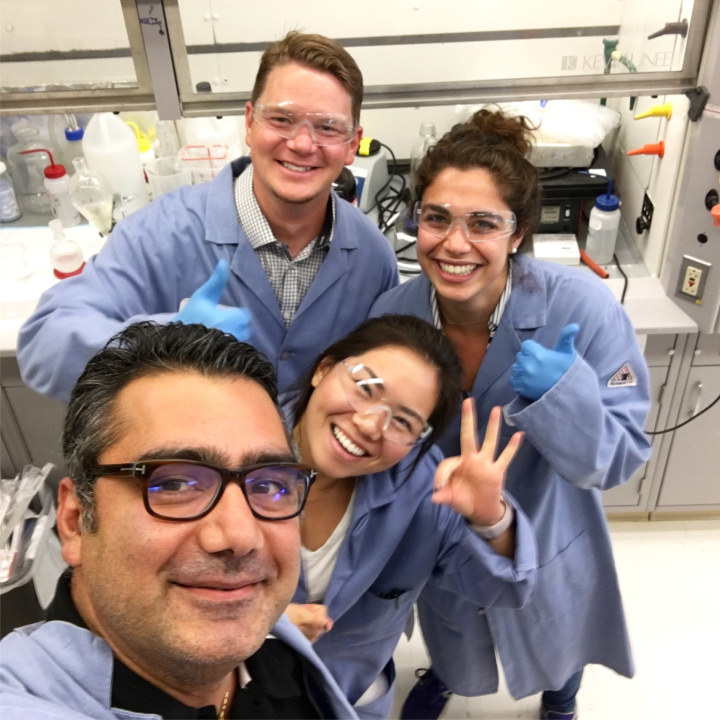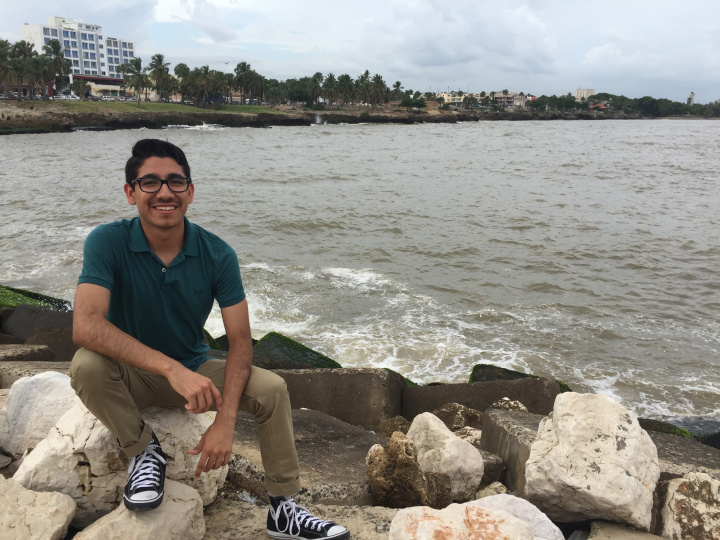By Sarah Goldberg, Undergraduate Career Development
with Ariella Lang, Director of Undergraduate Research and Fellowships
Whether you’re PhD bound, planning a career as a research physician, or considering another research-intensive post-grad path, trying out research as an undergraduate likely figures prominently in your plans.
On our Finding an Undergraduate Research Position tipsheet, you’ll find lots of advice for getting started, whether identifying your research interests, learning about research and funding opportunities on campus, or navigating outreach to professors.
This post will help you take the next steps in figuring out how to build your research profile toward post-grad opportunities.
Share your research on and off-campus.
As a budding researcher, you probably take great joy in the process of exploration and discovery, and that’s great!

Intrinsic motivation is crucial in research, as any project will include many obstacles, meanders, and even fresh starts along the way.
That said, when you’re a research professional, a big part of your job will be to share your research with others: not only will your research record likely be an important factor in your professional advancement, but participating in a research-sharing ecosystem will allow you to connect with other scholars, develop new ideas, learn about new opportunities, and help your research reach the audiences it can benefit.
Where do researchers share their work?
If you’ve perused your professors’ CVs, you’ll know that common places to share research include scholarly journals, monographs (book-length scholarly works by a single author), and professional conferences in your field. You’ll also likely notice faculty reporting more public-facing work, like public lectures, essays, podcasts, or interviews. Closer to home, you’ll often see events like departmental talks, seminars, and workshops.
You can publish, too.
As an undergraduate, you don’t have to aim for a publication in a top-tier journal—though of course if you have the opportunity to participate in any such project, we tip our hats to you!
There are many more accessible channels for publication, geared toward undergraduates. Here on campus, student groups like the Columbia Journal of Politics and Society, as well as departmental publications like PORTALES (Latin American and Iberian Cultures) or the Columbia Journal of History, offer opportunities for you to build a record of publication in your field.
Pro-Tip: We recommend checking out the nearly 20 journals published through Columbia’s library, including the Columbia Undergraduate Research Journal and Columbia Undergraduate Science Journal.
If you’re interested in doing more public-facing scholarship, there are many possibilities you can investigate, whether pitching to Scientific American’s website or checking out Columbia-born Public Books.
Present your research.
Consider signing up to present at undergraduate research symposia at Columbia, through your professional association, or at another university.

On campus, Undergraduate Research and Fellowships and SEAS both organize poster symposia for undergraduates every fall.
If you’re a SEAS student, we also recommend taking advantage of your Senior Design project and spring expo to showcase your presentation chops.
Venturing further afoot, professional associations often offer opportunities for you to present. For instance, the Society of Hispanic Professional Engineers holds an Engineering Science Symposium at their annual conference in the fall, for poster and oral presentations. Similarly, at their annual convention in January, the American Historical Association has an undergraduate poster session.
In short, no matter your field, there are opportunities open to undergrads.
Try your hand at securing funding or apply to a funded program.
If you become a research professional, chances are, you’ll need to secure grant or other institutional funding to support your work.
Though the idea of securing an NSF or NEH grant might feel completely unimaginable at this point in your career, know that even the mightiest MacArthur “Genius” Fellow started somewhere.
Pro-Tip: Once you prove that you’re able to secure small amounts of funding from less well-known grantors, you’re more likely to be competitive for other funding opportunities. Start small, and grow from there.
At Columbia, Undergraduate Research and Fellowships has an extensive list of funded research opportunities on their website, as well as support for research from academic departments.
For specific needs, there are other pockets of funding that you can apply to. For instance, the SEAS Dean’s Travel Fund can be used to support research presentations at conferences. If you’re writing a senior thesis, you may be able to apply for funding through CC or your academic department.
Of course, we’d be remiss not to mention the funding programs we administer through our office, which can provide funding or exemption from student work contributions while you’re doing an unpaid research project.
Finally, make sure you record your research accomplishments on your resume or CV.
A curriculum vitae, or CV for short, is a resume-like document that represents your educational and experiential background as a scholar.
Used in academic settings, a CV allows you to document your research experience in a number of ways:
-
In a “Publications” section, you can include any articles or book chapters you’ve published or contributed to.

-
In a “Presentations” section, you can list poster presentations, conference papers given, or even, as an undergraduate, research presentations you’ve done internally to your department or school.
-
In a “Research Experience” section, you can represent your main research experiences, with a description of the project, methods, and key findings. You’ll likely also include the names of project advisors or key collaborators.
-
Under your “Education” section, you can include the name of your senior thesis, advisers, and any related honors received.
-
In a “Grants and Awards” section, you can include any funding you secured to support your research, including travel grants, as well as any honors you received for projects or presentations.
-
In a “Research Interests” section, you can list your main areas of research interest.
For more details on how to create an undergraduate CV, check out our online tip sheet as well as these tips from Undergraduate Research and Fellowships.
When you’re ready for feedback, we recommend meeting with a career counselor or fellowships adviser for generalist feedback, as well as your research mentors for field-specific guidance.